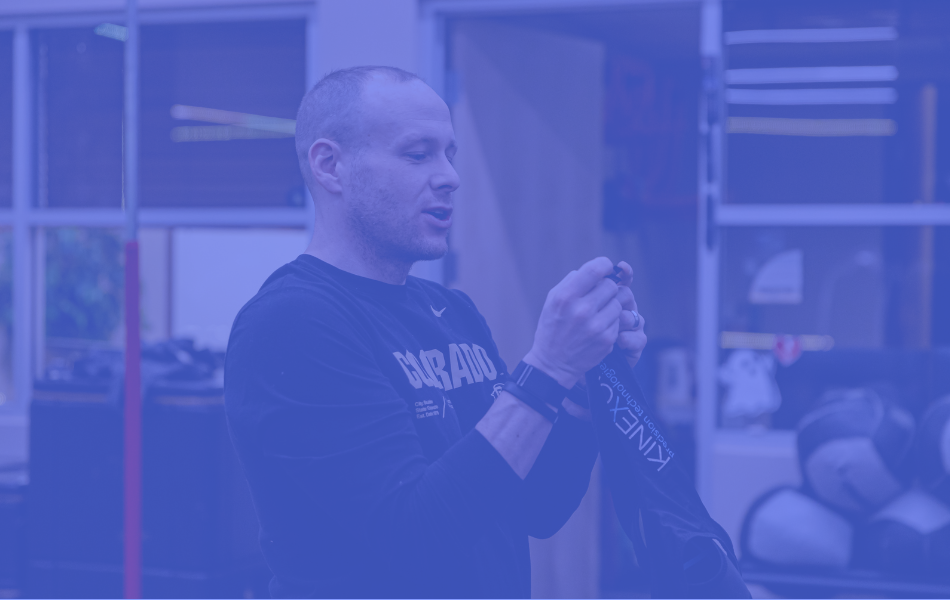Harnessing the Power of Sport Analytics in Collegiate Coaching
Modern day analysts, who aid coaches in planning for peak performance, often stress the importance of integrating analytics with coaching strategies rather than producing reports that are full of high-level concepts and not connected to actionable plans.

Welcome to my corner of the internet! I’m Adam Ringler, an Assistant Director of Strength and Conditioning at University of Colorado. Each week, I write about the world of coaching, ranging from innovative coaching strategies - derived from discussions with top-tier coaches and insights from the world of collegiate sports. If a friend shared this with you, be sure to sign up to receive articles when they go live.

Sign-Up for a Membership
I remember doing sport analytics before it seemed trendy and cool. Now days, as a data-informed coach, I feel like the implementation is more exciting and impactful than ever. We're seeing more and more sports analytics departments reside within the performance or strategy departments in athletic organizations. Athletic directors see these once data-nerds as “team members who uncover the cutting-edge techniques and technologies shaping the future of sports.”
Modern day analysts, who aid coaches in planning for peak performance, often stress the importance of integrating analytics with coaching strategies rather than producing reports that are full of high-level concepts and not connected to actionable plans.
In an era where collegiate athletics are increasingly competitive and intricate, data analysts must collaborate with coaching staff and leadership to develop data-informed strategies that inform/guide training programs and game plans.

Cultivating a Data-Informed Coaching Culture
Simultaneously, coaches should do more to encourage their teams to anticipate and adapt to emerging trends. I've asked many others coaches and sport analysts in this space to share some strategies on how coaches can embed analytical thinking into their programs. Here's what I've learned.
The overwhelming feedback I received from those I asked is having an independent, but integrated, team of professionals dedicated to fostering a data-informed culture - while ALSO arming them with the resources needed to complete robust analyst that serves the entire athletic department.
I've found that programs with limited budgets might consider partnering with an external analytics firm that aligns with their coaching and athletic department philosophy.
For instance, the strength and conditioning staff might collaborate with the analytics team on optimizing training loads, while the recruiting coordinator might explore data on athlete performance trends to enhance scouting efforts. Many national government bodies (NGBs) have been successfully implementing an internal “center of excellence” model that allows different coaching units to collaborate with their analytics team on various projects.
I recall a time when a particular team was struggling with an acute uptick in a specific type of injury. We decided to bring in our analytics team to look at the data. Through the analysis, investigating training loads, practice schedules, and biometric performance metrics; we discovered that these athletes were exacerbating the imbalances and asymmetries in their bodies through their training regiment. By adjusting the training plan and incorporating several corrective exercises based on the data, we not only reduced injuries but also saw a significant improvement in performance.
One common error I often see replicated across the nation is athletic departments establishing an analytics function – only to isolate it from the rest of the coaching staff. In many instances I've heard where their analytics departments operate out of separate facilities – away from athletics. 🙃
In such instances, the analysts “are experimenting and generating insights, but they’re not contributing to the resolution of coaching challenges.”
I’ve seen this happen firsthand with some of our rival schools. They have brilliant analysts, but the lack of integration means their insights often don’t translate into practical coaching strategies. Opportunity wasted.

Communicating the Vision
To truly foster a forward-thinking coaching culture, head coaches also need to emphasize the importance of data analytics, and coaching staff should find ways to integrate discussions about analytics into regular meetings and training sessions.
I remember a particular coaches meeting with a nationally prominent team. Before diving into strategy, the meeting began with a brief discussion on injury prevention. I knew that the team prioritizes athlete health, and in any gathering of three or more staff members, one person is designated to share key insights on injury mitigation.
Inspired by this, I decided to implement a similar practice with our basketball team. Before every coaches meeting, I have what I call a ‘data huddle.’ During these huddles, I review all pertinent data metrics or trends that could impact our strategy or athlete well-being. I remember one particular session where a few insights on our sleep patterns were shared and its correlation with on-court performance.
This insight led us to emphasize better sleep hygiene for our athletes, resulting in noticeable improvements in their energy levels and focus during games on the road.
Ever since, I've tried to adopt a version of this practice for every coach or executive meeting that I have. We all likely have had a similar ‘moment of data’ and I continue to encourage all our junior coaches to adopt and we practice equipping themselves with data objectivity.
As a rule of thumb, whenever I have a meeting with more than a few people, I typically start by asking, ‘What are some key data points or trends that have been observed recently?’ It’s an efficient way to maintain focus on analytics and shortcut to emerging trends.
I recall another instance when we were preparing for a crucial road game. Our coaches shared scout data on the opposing team’s defensive patterns, highlighting their weaknesses during fast breaks. Armed with the knowledge that the four days leading into the game, our team running velocities were above seasonal averages and the heart-rate data showed improved signs of cardiovascular fitness, these insights led us to adjust our game plan, emphasizing quick transitions and capitalizing on those gaps. The result? We executed our strategy flawlessly and secured a decisive victory.

Does Your Team Look to the Future?
Does your athletic program have a dedicated analytics team? How do you integrate data-informed insights into your coaching strategies and operations? How do you encourage your staff and athletes to harness the power of sports analytics and embrace a future-focused mindset? I would love to hear! Drop me a line below and let me share your response for the audience.


